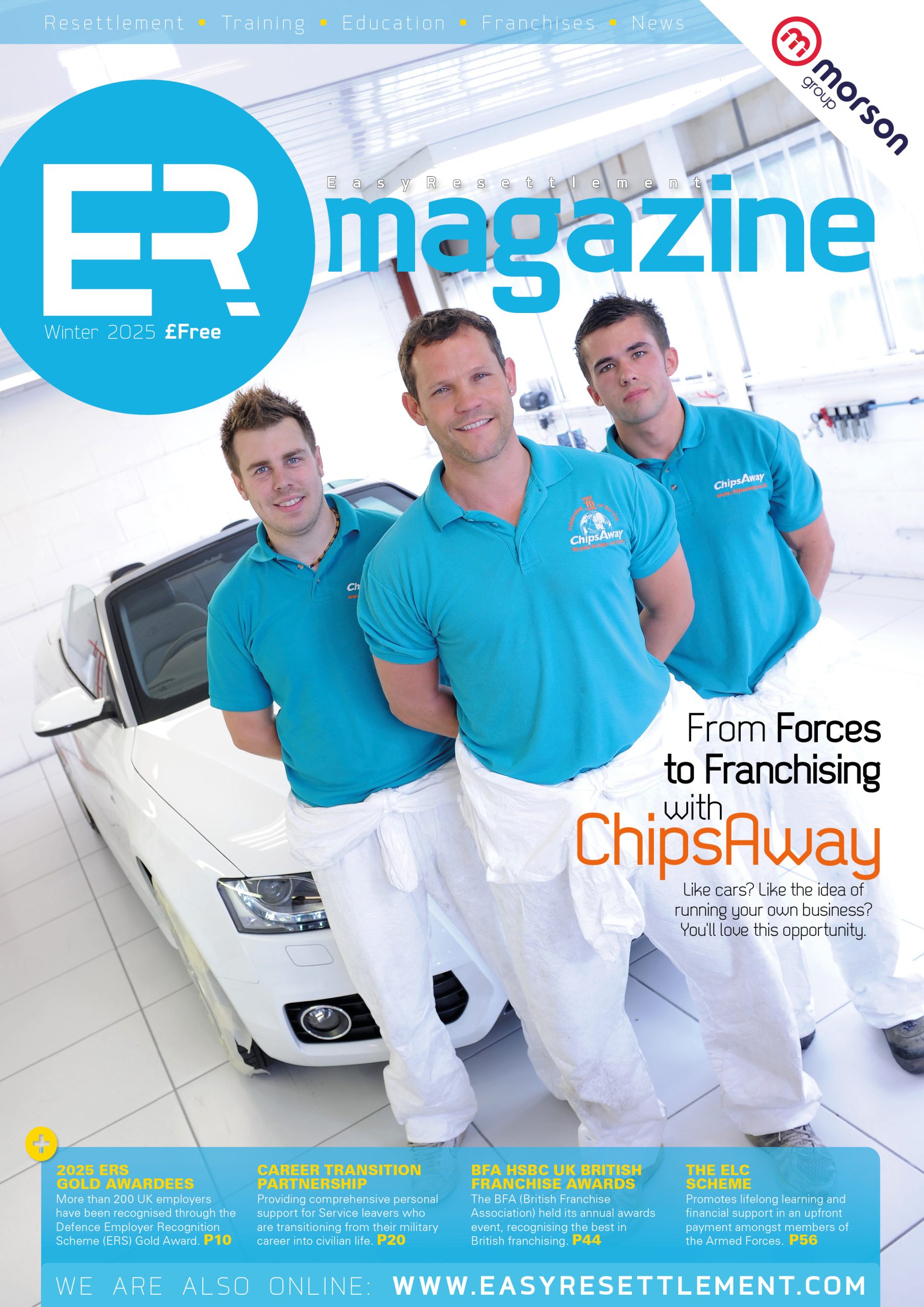Finding Purpose Beyond The Uniform, How Marshall helps veterans build second careers
Morson is a proud holder of the Gold Award from the Ministry of Defence’s Employer Recognition Scheme, reflecting our dedication to supporting ex-forces personnel as they transition to a life beyond the uniform.
Partnering with other Gold Award level businesses is one of the ways we best support this commitment.
Cambridge-based Marshall is trusted by some of the largest aerospace and defence companies in the world to support with the complex maintenance, repair & overhaul and parts manufacture across multiple aircraft types. They have supported the Lockheed Martin C-130 Hercules since 1966, when they were appointed as the UK’s designated technical centre for the Royal Air Force’s fleet of 65 aircraft. Within 10 years, they became the world’s first authorised Hercules Service Centre, opening up export work that has remained at the heart of their MRO and engineering operations.
At Morson, we’re proud to partner with Marshall in supporting recruitment vital programmes to keep C-130 fleets mission-ready. Marshall is an organisation with a long-standing reputation for engineering excellence, but what truly sets it apart is a culture that resonates strongly with those who have served in the armed forces.
For many veterans, the transition into civilian life is one of the toughest battles they’ll face. The structured, purposeful environment of the military can feel a world away from the complexity and ambiguity of civilian industry. Yet at Marshall, many ex-service personnel are finding not just jobs, but a renewed sense of belonging.
With the business soon to embark on a large recruitment drive for Aircraft Fitters to support a major upcoming C-130 MRO programme, we spoke to key ex-forces personnel across the business about their experiences.
One such veteran is Chris Platt, now Director of Airport Operations and Flight Test at Marshall. His story is a powerful example of how military experience can seamlessly translate into success in the aerospace sector, and why Marshall has become a natural home for those leaving uniformed service.
A career forged in the military
Like many who serve, Chris knew from an early age that the Army was his calling.
“I joined the Army’s Sixth Form College Welbeck at 16, went through the Royal Military Academy Sandhurst at 18, and was commissioned into the Corps of Royal Electrical and Mechanical Engineers (REME) at 19.”
Over the course of his career, he served across the UK, Germany, Canada, Oman, Kuwait, Iraq, and Afghanistan. His service culminated in commanding 7 Air Assault Battalion REME, responsible for supporting 16 Air Assault Brigade and the entirety of Army Aviation—a role that encompassed maintaining everything from rifles to Apache Attack Helicopters.
“Being a regular battalion Commanding Officer was the greatest privilege of my working life and I loved it… I certainly had many more ‘good days’ than ‘bad days’.”
But after two decades, the demands of military life were beginning to take their toll—not on him, but on his family.
“My family lived in one quarter for 8 months but I don’t remember it. I only lived in it for a couple of weeks. Whilst I enjoyed the excitement and sense of purpose on operations, my family were struggling with the instability and turmoil as they followed the flag. I knew my time to transition out of the Army, and give them the stability they needed, had come.”
Transitioning to civilian life
The decision to leave was clear. The process of adapting to civilian life, however, was not.
“If I’m honest, I actually found the transition quite difficult and it did take me a couple of years… In civilian life the unifying purpose of everyone working together to a clear objective is not always there, and the strong values and standards of the military aren’t consistently applied—I found that frustrating initially.”
Like many veterans, he also found the job market overwhelming. Military training produces highly adaptable generalists, but civilian recruitment often seeks narrow, technical matches. It was only through the power of networking—conversations with friends and contacts—that he found his first role at Lockheed Martin. That experience eventually led him to Marshall.
“The lesson I took from this is that networking can be vital in securing the right civilian job and should maybe be something that the military’s Career Transition Workshop plays a more active part in.”
Leadership at Marshall
Today, his dual role as Director of Airport Operations and Flight Test keeps him at the heart of Marshall’s mission.
In one capacity, he oversees the airport, aviation security, and air traffic control, accountable for safety and regulatory compliance. In the other, he leads Marshall’s flight test capability—a team of test pilots, flight engineers, and loadmasters, many of whom are also ex-forces.
“The professionalism and knowledge of my aircrew (largely ex-RAF), continues to impress me even after 5 years with them. The thing I enjoy most is watching my team develop, gain confidence and then succeed on their own merits.”
That sense of camaraderie, purpose, and mission focus is what makes Marshall such a strong fit for veterans.
“Being an Aerospace and Defence company, Marshall understands the military. Veterans are respected for what they’ve done and used accordingly. You can continue to be part of the wider force that enables the military to operate and be a force for good—that gives me job satisfaction as my output is not purely to feed the bottom line of a spreadsheet.”
Why Marshall stands out
At Morson, we’ve seen how veterans bring unmatched skills and resilience into the workforce. What sets Marshall apart is how it values those qualities—not as a box-ticking exercise, but as a genuine driver of business success.
Within Marshall’s teams, veterans are finding new ways to apply their leadership, discipline, and technical expertise. They’re discovering that leaving the forces doesn’t mean leaving behind purpose or pride. It means finding a new mission that continues to support those who serve today.
For veterans looking to build their next chapter, Marshall isn’t just a workplace. It’s a place to belong.
Advice for service leavers
For those preparing to leave the forces, Chris’s advice is clear and practical.
“Pick the right time to leave and prioritise resettlement and job hunting from the moment you click on JPA. Invest significant effort in reaching out to old friends, previous officers, or family members, and network for advice or opportunities. I’ve spoken with far too many ex-servicemen who only start looking for a job in their last month.”
And most importantly—be proud of your service.
“Whilst many recruiters advise you to completely civilianise your CV, I’d say make sure people can still tell you were in the military. It’s something to be very proud of, and any other veteran would understand the broader benefits, behaviours and skills that your military experience brings with it.”

